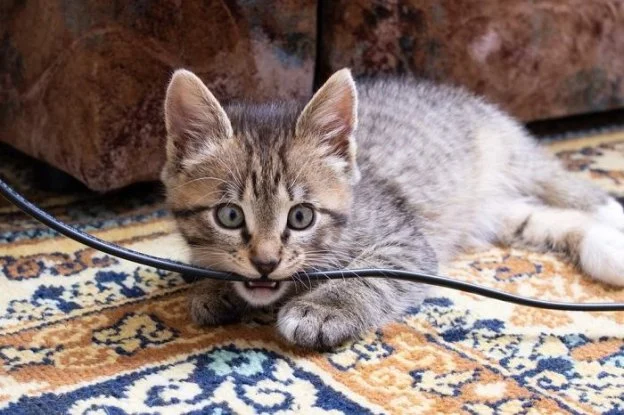
How to Stop Your Cat from Chewing on Electrical Cords
Cats are curious creatures, and one of their more dangerous habits is chewing on electrical cords. Not only can this cause significant damage to your appliances and furniture, but it can also lead to severe safety hazards, including electric shock. If your cat has developed a penchant for chewing on electrical cords, it’s essential to take immediate steps to prevent this behavior. In this guide, we’ll discuss practical solutions for stopping your cat from chewing on electrical cords and creating a safer environment for your furry friend.
- 1. Understanding the Cause of the Behavior
- 2. Creating a Safe Environment
- 3. Training and Distraction Techniques
- 4. Providing Cat-Friendly Alternatives
- 5. How Omnia Pet Can Help You
1. Understanding the Cause of the Behavior
Before addressing the issue, it’s important to understand why your cat may be chewing on electrical cords in the first place. Cats chew on things for a variety of reasons:

Packanack Animal Hospital
455 Newark Pompton Turnpike, Wayne, NJ 07470, USA
1.1 Teething and Dental Issues
For kittens, chewing can be a natural way to soothe their teething pain. Similarly, adult cats may chew if they have dental problems or discomfort. If your cat is young, this might simply be a phase that will pass with time, though it should still be monitored closely.

Housecall Animal Medical Care
ExeterWashington CountyRhode Island
21 Quail Hollow Dr, Exeter, RI 02822, USA
1.2 Boredom and Anxiety
Cats that are left alone for long periods or lack sufficient stimulation may chew on cords as a way to relieve boredom or stress. This is especially common in indoor cats who don't have enough space or toys to keep them occupied.
1.3 Instinctual Behavior
Chewing is also an instinctive behavior for cats, especially those that are exploring their surroundings. They might chew on cords because they find the texture intriguing or because it mimics the action of hunting or playing.
2. Creating a Safe Environment
The first step in stopping your cat from chewing on electrical cords is to make your home a safer and less tempting place for this behavior to occur. Here's how you can do that:
2.1 Cord Management
Start by hiding or securing electrical cords that your cat is prone to chew. Use cord covers, which are specially designed to protect wires from chewing. You can also move furniture or appliances to minimize exposure to cords or use cord organizers to keep them out of sight.
2.2 Cat-Proofing Your Home
Make sure that areas with exposed cords are cat-proofed. You can use protective tape or furniture pieces that block access to the cords. Also, consider placing your cat’s favorite toys or scratching posts near these areas to distract them from the cords.
2.3 Use Deterrent Sprays
There are many pet-safe sprays on the market that have an unpleasant taste for cats. Applying a deterrent spray on cords can help discourage your cat from chewing them. Just make sure to choose a spray that’s safe for pets and non-toxic if ingested.
3. Training and Distraction Techniques
Training your cat to stop chewing on electrical cords requires patience and consistency. Here are a few effective methods:
3.1 Positive Reinforcement
Reward your cat with treats or praise when they focus on an appropriate toy or behavior instead of chewing on cords. This helps reinforce positive behavior and gives your cat a clear understanding of what is acceptable.
3.2 Redirection
If you catch your cat chewing on a cord, gently redirect them to an appropriate object, such as a chew toy or scratching post. Repeating this action can help them learn that cords are off-limits, and toys are the preferred chewables.
3.3 Providing Mental Stimulation
Since boredom is a common reason cats chew, ensure your cat has plenty of interactive toys, puzzle feeders, and playtime with you. A well-exercised and mentally stimulated cat is less likely to engage in destructive chewing.
4. Providing Cat-Friendly Alternatives
Giving your cat appropriate alternatives to chew on can reduce their desire to chew on electrical cords. Consider these options:
4.1 Chew Toys
Provide your cat with chew toys that are designed to keep them engaged. Rubber toys or natural materials like sisal or leather are great options. Some toys even come with catnip or treats inside, making them more enticing for your cat.
4.2 Cat Grass and Herbal Chews
For cats that love to nibble, you can offer cat grass or herbal chews. These are safe for cats to chew on and can satisfy their urge to gnaw while providing health benefits, such as aiding digestion.
5. How Omnia Pet Can Help You
At Omnia Pet, we offer a wide range of pet products designed to keep your cat happy and healthy. From chew toys to cord protectors, our high-quality products can help keep your cat entertained and prevent dangerous behaviors like chewing on electrical cords. Visit Omnia Pet for expert advice and the best pet products to support your cat’s needs.


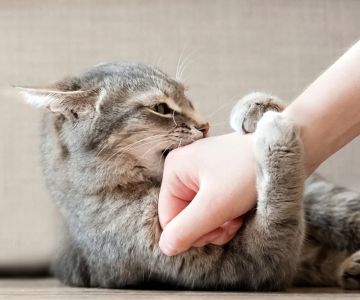
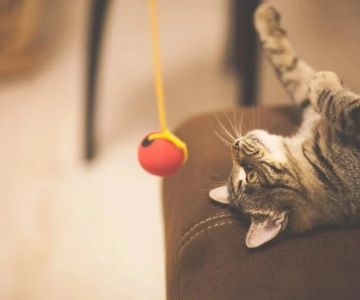
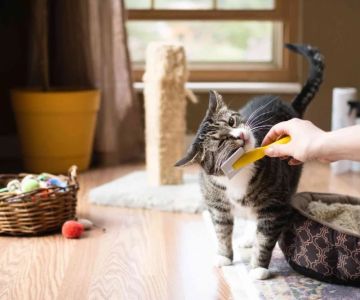

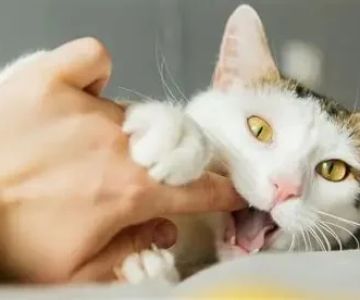
 Hollywood Feed4.0 (184 reviews)
Hollywood Feed4.0 (184 reviews) Brew Biscuits5.0 (2 reviews)
Brew Biscuits5.0 (2 reviews) All Friends Animal Hospital4.0 (446 reviews)
All Friends Animal Hospital4.0 (446 reviews) Kittylandkittens LLC0.0 (0 reviews)
Kittylandkittens LLC0.0 (0 reviews) Village Animal Clinic4.0 (212 reviews)
Village Animal Clinic4.0 (212 reviews) Rift Lake Aquatics4.0 (165 reviews)
Rift Lake Aquatics4.0 (165 reviews) Understanding Pet Insurance: What Does It Actually Cover?
Understanding Pet Insurance: What Does It Actually Cover?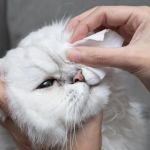 How to Keep Your Kitten's Eyes Clean and Free of Discharge
How to Keep Your Kitten's Eyes Clean and Free of Discharge The Truth About Heartworm Disease: Prevention is Cheaper Than Cure
The Truth About Heartworm Disease: Prevention is Cheaper Than Cure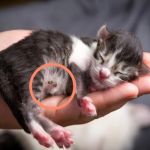 Why Is My Kitten's Belly Button Showing? | Omnia Pet
Why Is My Kitten's Belly Button Showing? | Omnia Pet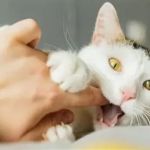 Why Does My Cat Bite Me Gently? Love Bites Explained
Why Does My Cat Bite Me Gently? Love Bites Explained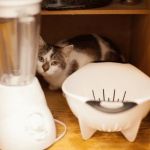 How to Stop Your Kitten from Getting into Cabinets
How to Stop Your Kitten from Getting into Cabinets